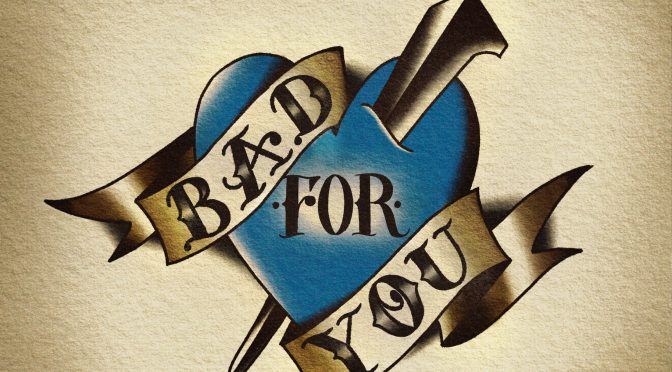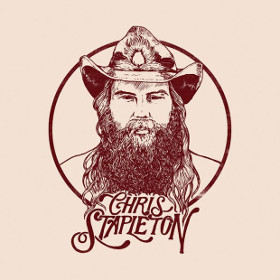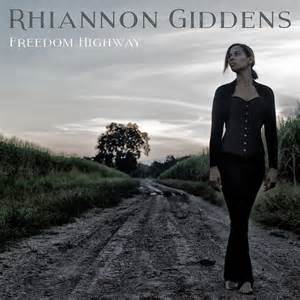Rating: 8.5/10
So let’s talk about the elephant in the room here, the obvious comparisons of the SteelDrivers’ new lead singer, Kelvin Damrell, to their former frontman Chris Stapleton. Personally, I thought I could listen to this record without that elephant being an issue, as I had only heard one song by this band with Stapleton–and none with their last frontman, Gary Nichols, for that matter. Then I put on this record and heard the voice of Kelvin Damrell belting out with grit and soul and untamed passion on the opener and title track, and from the first notes, I knew ignoring the Stapleton comparisons would in fact be a sheer impossibility; it sounds as if this guy, who was discovered by a happy accident on YouTube, was sent to the SteelDrivers from some sort of secret Chris Stapleton cloning factory where they’re working to mass produce one of the greatest voices in modern country music.
The band simply will not escape this comparison, and indeed, it’s hard to say if they even want to escape it. But for this listener, the Stapleton resemblance soon became secondary to the album itself because by the third track, I had to admit the inevitable truth, that with all love and respect to Chris Stapleton, Kelvin Damrell is better, especially for this band, with more passion and inflection and a little more sensitivity to the lyrics, providing the same soulful tones that we all love about his predecessor but somehow having a bit more of a sense about when to hold back that vocal power in exchange for raw expressions of emotion. It will be a matter of personal taste as to whether you prefer Damrell or Stapleton, but Kelvin Damrell has proven that he should at least be evaluated on his own merits, and that however similar to Stapleton he may sound in tone, his vocal choices and delivery set him apart–and besides, being compared vocally to Chris Stapleton is one of the highest praises any singer, country or otherwise, can hope to receive these days. So let’s move on from the elephant and discuss the album itself.
And this album is just so good for the soul. It’s great to hear the country genre being carried forward respectfully in more modern ways, and you certainly don’t always need banjo and fiddle to make a country song, but damn it, sometimes it’s just comforting to hear these instruments proudly in the mix, and the picking of Richard Bailey and fiddling of Tammy Rodgers serve as a nice cure for the drum machines and electronic sounds ailing country music in 2020. And although this is bluegrass music and respectful to the roots of that genre, it’s imbibed with soul and blues and instilled with a youth and energy which sets the SteelDrivers apart from so many other bluegrass bands. It’s also more lyrically focused than most bluegrass, making it much closer to its country music cousin. No disrespect to other cool bluegrass bands like the Infamous Stringdusters, whose every record is a statement of pure instrumental impressiveness, but the SteelDrivers are more concerned with the mood of these songs and with framing the instrumentation to fit the lyrics; they’re just being themselves, but consequently, this is an album perhaps more accessible than many in this subgenre and a good introduction for your country detractor friends into the world of bluegrass.
AS for the lyrics themselves, self-condemnation and sorrow run heavily through this record. These themes are present in the opener and title track, as the narrator calmly warns a woman to stay far away from him, reflecting ruefully, “ain’t it kind of me to tell you the truth.” There’s the bartender attempting to justify himself in the track of the same name by declaring, “Some may call me a sinner, but when it’s all said and done, I don’t pull the trigger, i just load the gun.” There’s unbridled heartache in “Falling Man,” brought to life by the raw emotion of Kelvin Damrell’s vocals and set off expertly by the sorrowful licks of the fiddle and banjo. It all seems to culminate in the brooding “Innocent Man,” set in a haunting minor key and seeing the narrator ruminating on the crime he committed. He’ll never get caught, but he’ll have to live with the decision for the rest of his life, and that’s almost worse than prison. There are a few lightweight tracks lyrically, but overall, the songwriting is a strength. There could be a bit more depth in places, but these lighter moments are generally lively and infectious and serve to brighten up the somber atmosphere a little.
This is a fine album and a welcome return for the SteelDrivers. It’s a great mix of beautiful bluegrass instrumentation and heartfelt songwriting, all infused with the blues and soul of Kelvin Damrell to create something really unique. On a personal note, it’s been quite awhile since i have had the motivation or inspiration to write about anything, and it’s wonderful to have such a great record to start all this anew. The year is young, but Bad for You has the kind of replay value that will give it staying power, and it may well be in the conversation when the endless 2020 lists start pouring in come December. Go give it a listen, and if you’re new to bluegrass, you may find this record a warm, wonderful welcome into another beautiful corner of our beloved country music.


